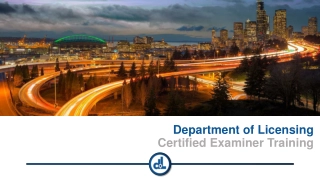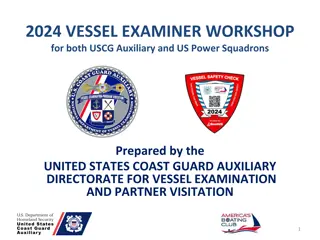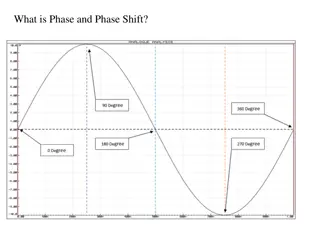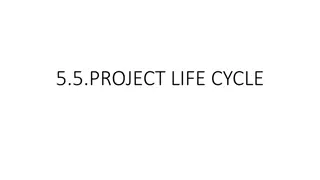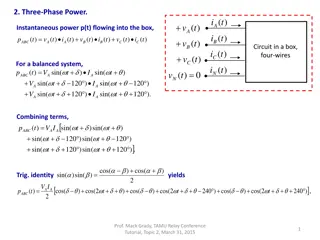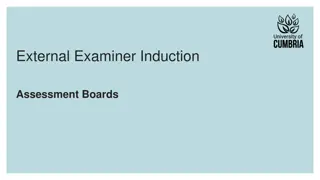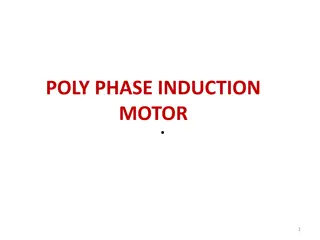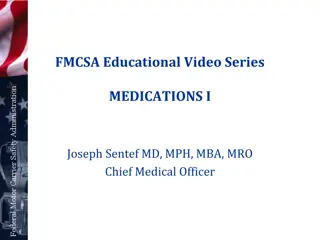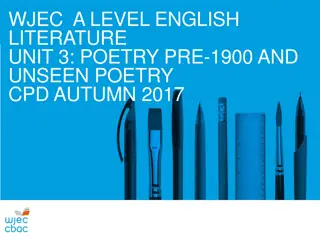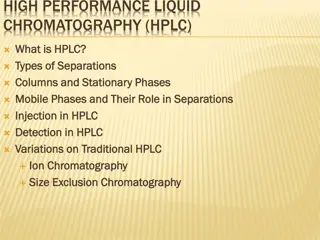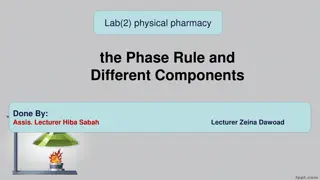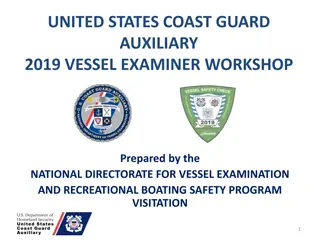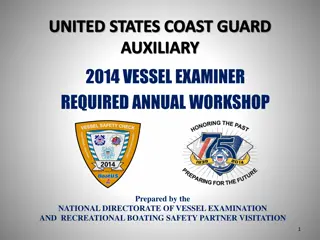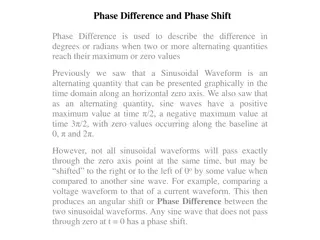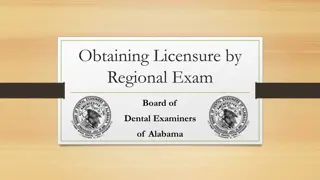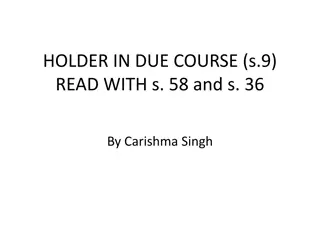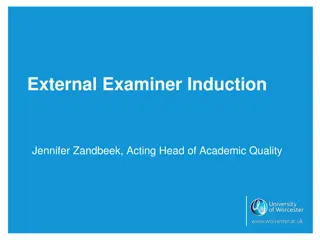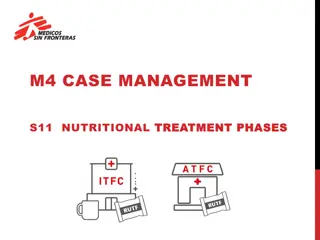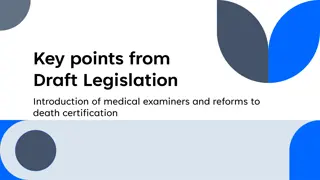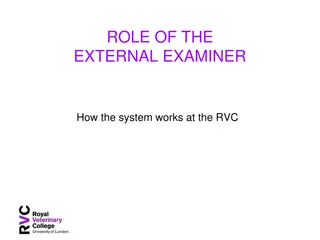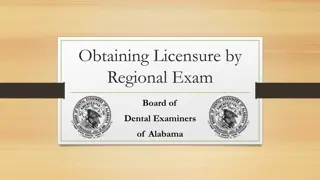Roles and Challenges of Higher Degrees Committees in Academic Supervision
Exploring the multifaceted roles of Higher Degrees Committees (HDC) in academic supervision, this content delves into the responsibilities of HDC members, the key purposes of the committee, criteria for assessing research proposals, and challenges faced in maintaining collegiality and focus during meetings. It also discusses the importance of quality assurance, ethical clearance, and supporting both supervisors and students in developing robust research studies.
Download Presentation

Please find below an Image/Link to download the presentation.
The content on the website is provided AS IS for your information and personal use only. It may not be sold, licensed, or shared on other websites without obtaining consent from the author. Download presentation by click this link. If you encounter any issues during the download, it is possible that the publisher has removed the file from their server.
E N D
Presentation Transcript
Phase 3 HDC and External Examining
Multiple Roles Inevitably, taking on the role of PG Supervisor entails taking on other roles too. Member of Higher Degrees Committee External Examiner Other?
Higher Degrees Committee What are the roles of an HDC?
Higher Degrees Committee Might include the following: Quality assurance of projects Appointing or confirming supervisors Ethical clearance (Or is this a separate committee in your university? What are the Pros and Cons of having these committees separate or integrated?) Support supervisors and students to develop strong studies
Higher Degrees Committee Key purpose of the committee - to assess the quality of the proposed research and to support the supervisor and student by doing so. What is quality in a research proposal and how do the committee members assess this? How can the committee support the supervisor and student ?
What might the committee look for in a proposal? Quality and clarity of contextual framing, conceptualisation and methodology of the research What does this look like? How does a reader recognise it (or its absence)? Scope and level of research is appropriate to the level of study - What should a doctoral proposal look like? What should a Master s proposal look like? What distinguishes a half from full thesis study? Clarity of the research goals and questions/hypothesis How is this judged? Do-ability of the research - How is this judged? Ethical criteria - How are these judged?
Problems in HDC Because the HDC plays a gatekeeper role, it is often a place of some contention. How can the committee ensure that the meetings are collegial and focused on its mandate? Where the HDC comprises more than one discipline, it is the most contentious. Why is this? How can this problem be addressed? What is the structure of the HDC in your institution/faculty/ department?
The primary audience of the doctoral thesis is not the companionable dear reader but the examiner, faceless, feared and potentially testy. The imagined marker of the thesis lurks amongst the dark things at the back of the cave, things feared to snatch away and devour the children of one s labours. What tales do those who mark doctoral theses tell? And what of the oral examination, conducted behind closed doors with a Hogwartsian sense that it is an arcane ritual, a mystery and properly so? Carter 2008
Novice vs experienced examiners experienced examiners make judgements about the quality of a thesis by the time they have read the first two chapters, often sooner. The final, substantive judgement is determined by: the student s confidence and independence; a creative view of the topic; the structure of the argument; the coherence of theoretical and methodological perspectives; and evidence of critical self-assessment by the student. (Mullins and Kiley 2002)
Novice vs Experienced Examiners Experienced examiners inclined to approach the thesis expecting it to pass, expecting to welcome new academic to the field, expecting to provide formative feedback to strengthen the thesis. Novice examiners inclined to approach a thesis as an examination where their role is to determine if the thesis is good enough and if the student deserves to be welcomed into the field. (Mullins and Kiley 2002)
External Examination What format is usually followed in the examiner s report in your discipline? What is the role of the examiner? What key issues determine whether a thesis is at doctoral level in your discipline? What are the implications of failing a doctorate and how do these differ from failing at any other level? Which of the above issues are universal and which are particular to your institution and your discipline?
External Examination The following few slides contain excerpts from institutional instructions to examiners and excerpts from examiner reports. As a group, discuss each in terms of your understanding of the role of the examiner. Is there a correlation between what is expected of the examiner in the instructions and what is evident in the examiner reports?
Institutional instructions to examiners: It should be stressed that XXX University regards detailed reports as crucial to the examination process, and it is normal (but not obligatory) practice to supply them to students as good examples of peer review , from which they can learn and draw benefit as they embark on their research careers. Although it is common that these reports draw attention to typographical errors and other editorial blemishes, examiners are urged not to confine themselves to simply listing these, but should report on the main features of the thesis, its merits and weaknesses, and draw attention to any aspects of particular interest or importance (suggestions of how the thesis or parts of it could be revised in article form for a reputable journal would be welcome). While no stipulation can be made as regards the length of the report, it is suggested that it might run to between three and five pages.
Institutional instructions to examiners: Has the candidate adequately identified and described the research problem / question and goal? Does the thesis show that the candidate is sufficiently acquainted with the appropriate methods and techniques of research for the award of the degree? Does the thesis show that the candidate has sufficient acquaintance with the current and other relevant literature? (Bibliography) Is the thesis satisfactory as regards literary presentation? (Systematic, documented, etc) Does it constitute an original contribution? Is the substance of the thesis worthy of publication?
Do you recommend that: Please choose ONE only the candidate be awarded the degree and that no corrections need be made to the thesis OR the candidate be awarded the degree, but minor corrections (e.g. spelling, typing, references) should be made to the satisfaction of the supervisor and / or Head of Department OR the candidate should be awarded the degree after identified changes have been made to the satisfaction of the supervisor and / or Head of Department OR although the thesis does not meet the required standard, the candidate should be invited to do further work if necessary, revise and resubmit the thesis for re-examination by the examiners OR the candidate should submit to an oral or written examination on the subject of his or her thesis and / or on the whole field of study which it convers OR the degree should not be awarded to the candidate
Institutional instructions to examiners: Are you prepared to be identified to the candidate if the degree is awarded and are you prepared to allow the candidate to read your report in whole or part? (Please be aware that it is normally the practice for examiner s reports, and the identity of the examiner, to be made known to the candidate at the end of the examination process. If an external examiner, or the Dean, has reason for not complying with this practice, this must specifically be requested of the Vice-Chancellor to act on behalf of Senate.)
Extracts from a few External Examiner Reports follow
Critical realism asks questions about social injustices Gives decision early in report Report A and inequalities. This thesis uses it explicitly for this purpose. Through an analysis of multiple data sources, the writer is able to make commentary on the relationships between structure, culture and agency and they ways in which these enable or constrain, reproduce or transform. It is my view that this thesis is a worthy PhD and that it significantly enhances our understanding of XYZ as a social process which engages deeply with various aspects of students identity and culture. It also raises a variety of issues that should be taken into account when developing such programmes, not least the need for a high degree of autonomy for mentors and mentees. REPORT A Begins with brief description of the thesis
This report however details a concern about the lack of connections made between sections and the lack of linking between ideas. I have tried in the list below to make explicit reference to where such sentences or paragraphs could be inserted which would guide the reader and explain the logic behind the structure. Helpful, clear advice A further concern is that the complexity of the thesis has at times led to a lack of cohesion. The writer has not sufficiently explicated the relationship between Critical Realism, Discourse Analysis, Invitational Learning Model and CoP. The last two are especially confusing as the reader is not provided clear guidance as to the role of these two theories within the thesis structure. Again, I have tried in my comments below to indicate where discussions about such layers and their relationship to each other could be inserted. I believe that such explication can be inserted fairly readily and would greatly enhance the flow of the thesis. What was main concern?
Report B What is the issue? The thesis is scattered with anecdotal claims. Such claims may well be true and are undoubtedly acceptable in everyday conversation. But the rigours of academic writing mean that such claims need clear evidence such evidence is usually garnered from prior research and literature, but can also be from the data in the study itself or by directly citing personal experience. I detail below some examples where unacceptable claims to truth are made without support:
Report C What is the issue? The major problem is that the literature takes the form of summarized readings one after the other rather than a literature review. If the literature review chapter had rather been a chapter where concepts that are key to the topic are discussed in relation to a broad range of literature this would have been a much stronger chapter
What are the main issues that have arisen in examiners reports in your faculty? How are examiner reports used in your faculty to improve the quality of future research?
Selecting the examiners What are your institution s rules about doctoral examination? Who selects the examiners and how are they appointed? How many examiners and where must they come from? Why are internal examiners often problematic? Why are international examiners essential at doctoral level? What characteristics does a supervisor look for in an examiner? How do you know who would make a suitable examiner?
Interacting with the examiners You may not discuss the student with the examiner, or discuss the examination process Select someone with expertise on the topic, and with a shared approach to research Important that supervisors network in their disciplinary community in order to meet potential examiners Familiarise yourself with potential examiners work
Phase 3 The Viva
Live Voice Viva Voce (usually shortened to Viva ) is Latin for Live Voice Oral exam that follows the examination of the written dissertation. Can vary from being a formality, being a space to publically engage with central issues and share knowledge, to being an essential part of the examination process.
Make or Break? Can be a place to check examiners concerns and especially to check the researcher s ownership of the work. Can be a place where the researcher gets the chance to debate with experts in the field (examiners) and get critique and support for future research or publication of this research.
Routine or Particular In some countries and in some institutions in SA, the viva is a routine part of the doctoral journey. In some institutions the viva is only used where there are doubts as to the researcher s authorship or where the examiners disagree about passing or failing the thesis.
http://phd-viva.com/ This website contains a number of stories and suggestions about the viva. Other online resources: http://www.jwelford.demon.co.uk/brainwaremap/viva.html http://www.vitae.ac.uk/researchers/1241/Your-viva.html You will also find a helpful document on the Online site entitled: Twigg 1997 Viva. This document includes helpful advice from supervisors across the disciplines. REMEMBER: All PPTS from this course can be found online on the course site.
Do you have vivas as part of the examination process? If so, what is the key function they serve? Who is present at the viva? What do you think are the benefits of including a viva in the Doctoral process?
The role of the supervisor What do you think the supervisor needs to do in relation to the following stages of the viva? Preparation Practice run Immediately before During After the viva
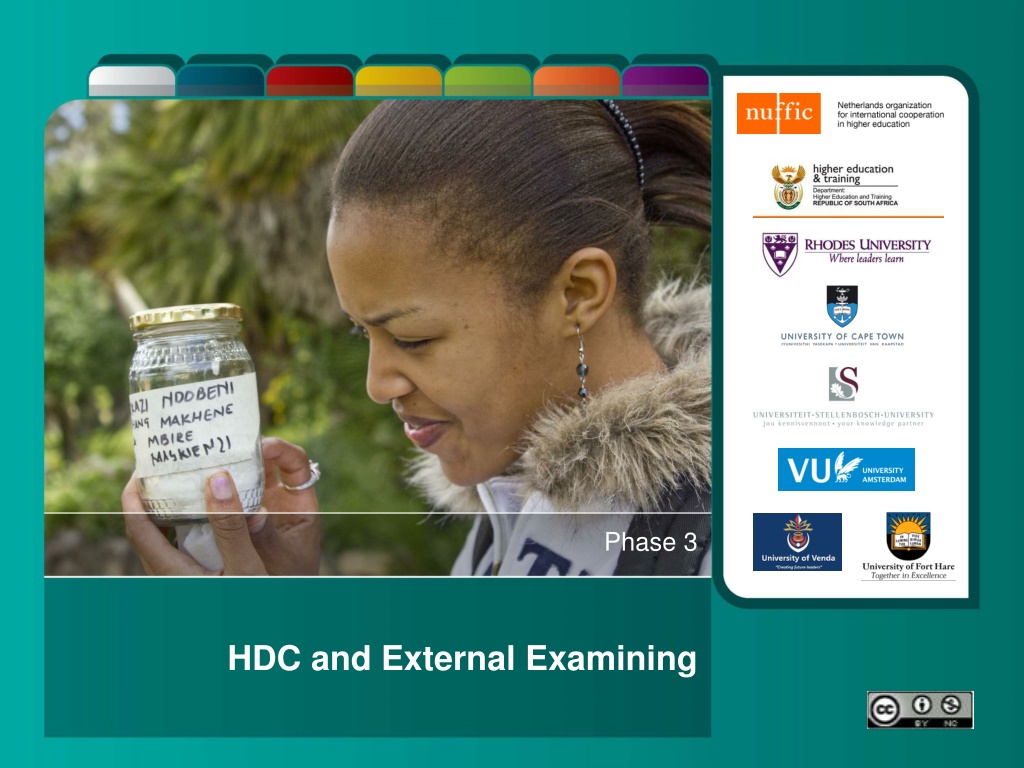
 undefined
undefined





